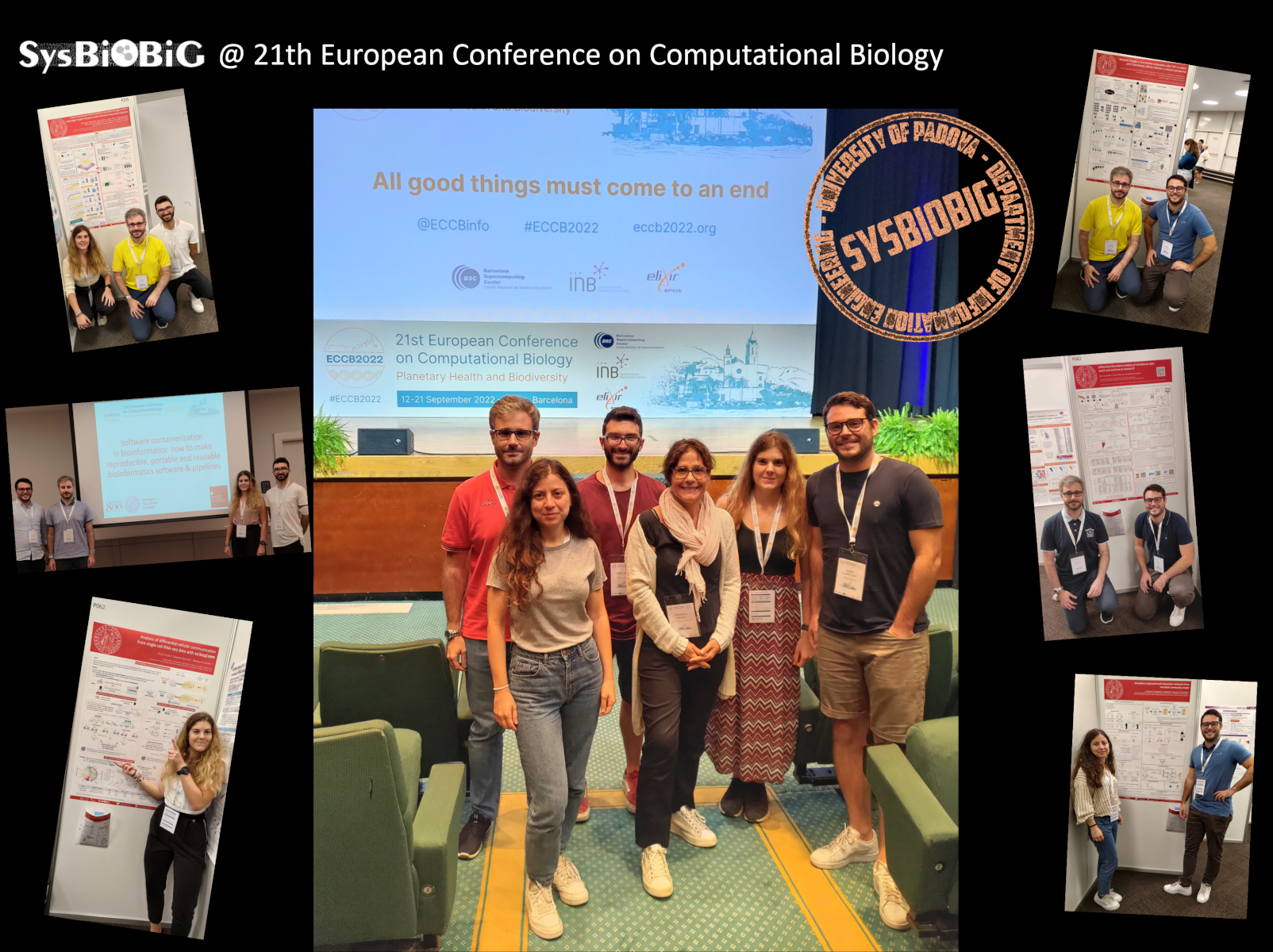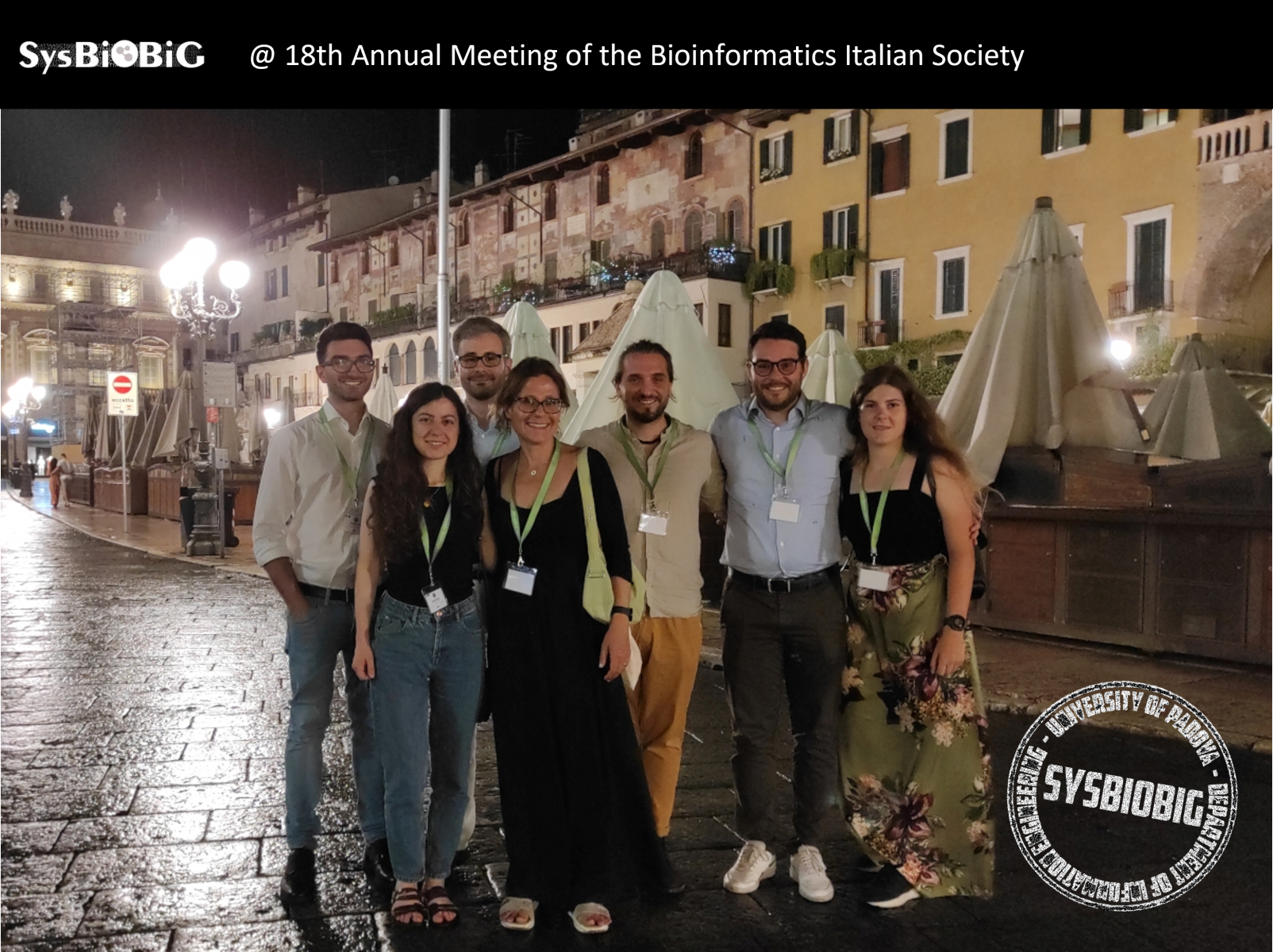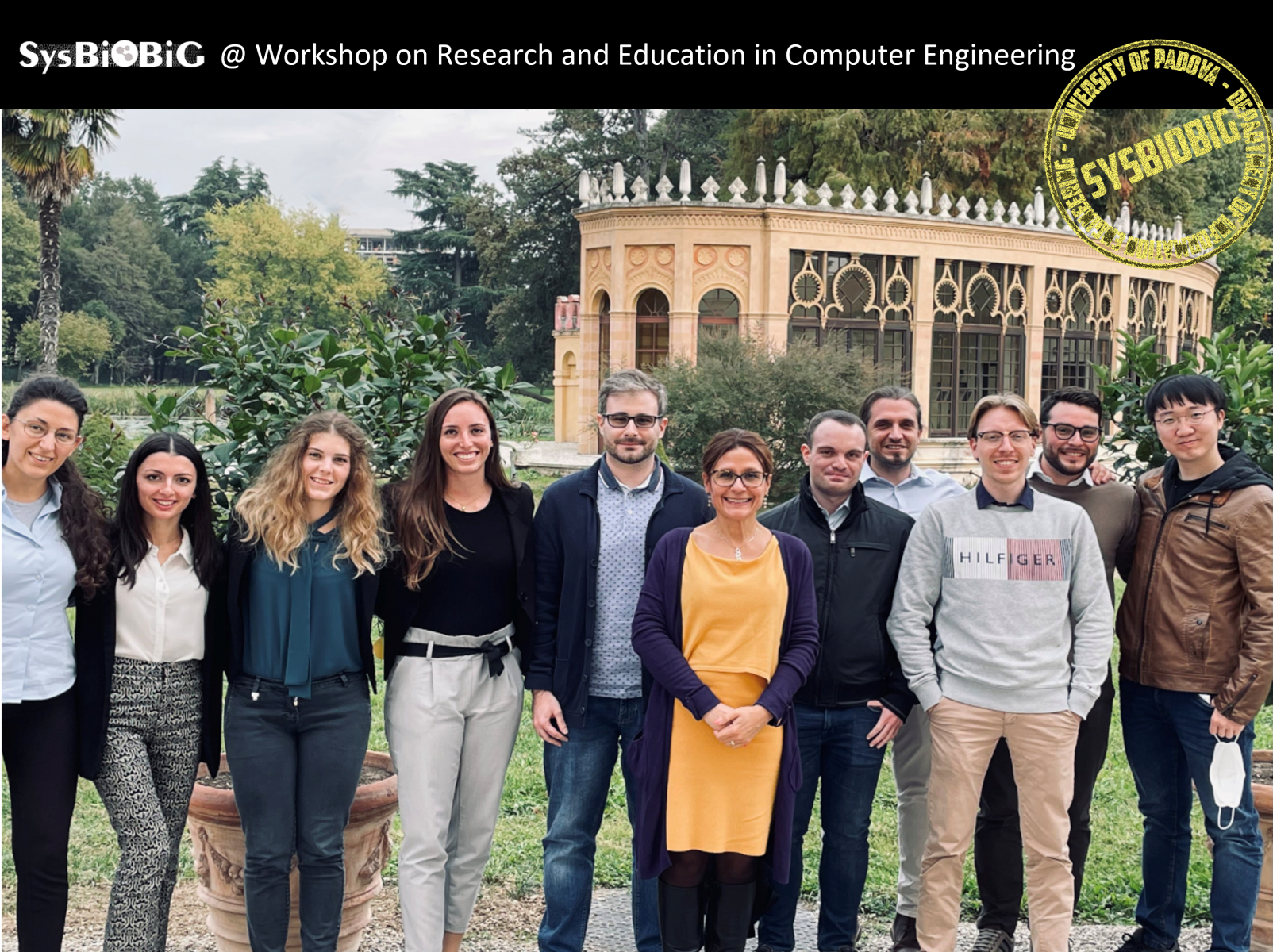Research
The Sysbiobig group research activity is centred in the development and application of advanced modelling, data mining and machine learning methods for high-throughput biological data analysis in the field of Bioinformatics and Health Informatics.

In particular, the Sysbiobig group has been working on the preprocessing and analysis of static and dynamic transcriptomics and metagenomics data and has developed and applied different advanced data mining and machine learning methods for robust biomarker discovery, predictive modelling and clustering
The group has also a great expertise in the development/application of differential equation based models, Boolean and Bayesian Networks in the field of reverse engineering and systems biology.
Recently, the group has also started to explore a new research line in the field of Synthetic biology. By implementing new biological systems in the form of living cells, engineered through rationally designed synthetic genetic circuits, our group aims to exploit engineered probiotic bacterial cells as a novel therapeutic approach.
- Participation in the UNIPD Annual Event of the DARE Initiative
- New article on realistic tumoral sample simulation published in BMC Bioinformatics!
- New article published on IEEE Access
- Longhin F, Baruzzo G, Hazizaj E, Boscarino D, Paladin D, Di Camillo B. MOV&RSim: computational modelling of cancer-specific variants and sequencing reads characteristics for realistic tumoral sample simulation. BMC Bioinformatics 2025
- Lee Y, Baruzzo G, Kim J, Seo J, Di Camillo B. Validity of Feature Importance in Low-Performing Machine Learning for Tabular Biomedical Data. IEEE Access 2025
- Cesaro G, Baruzzo G, Tussardi G, Di Camillo B. Differential cellular communication inference framework for large-scale single-cell RNA-sequencing data. NAR Genomics and Bioinformatics 2025
- Cesaro G, Nagai JS, Gnoato N, Chiodi A, Tussardi G, Klöker V, Musumarra CV, Mosca E, Costa IG, Di Camillo B, Calura E, & Baruzzo G. Advances and challenges in cell-cell communication inference: a comprehensive review of tools, resources, and future directions. Briefings in Bioinformatics 2025
- Baruzzo G, Cesaro G, Di Camillo B. quickSparseM: a library for memory- and time-efficient computation on large, sparse matrices with application to omics data. Proceedings of the 33rd Euromicro International Conference on Parallel, Distributed, and Network-Based Processing (PDP) 2025
Main Fundings
- 2025-2029 Fondo Italiano per le Scienze Applicate (FISA) (Call 2023): “Responsive early antibiotic resistance detection and therapy: a biological data analytics, automation and artificial intelligence based approach (READY)”.
- 2021-2024 European Project H2020: “BRAINTEASER – BRinging Artificial INTelligencE home for a better cAre of amyotrophic lateral sclerosis and multiple SclERosis”.
- 2018-2021 PRIN (Call 2017): “Deconstruct and rebuild phenotypes: a multimodal approach toward personalized medicine in ALS (DECIPHER-ALS)”.
- 2017-2020 Information Engineering Department, University of Padova “Proactive Project Grant”: “From Single-Cell to Multi-Cells Information Systems Analysis
- 2016-2019 European Project H2020: “PULSE: Participatory Urban Living for Sustainable Environments”




